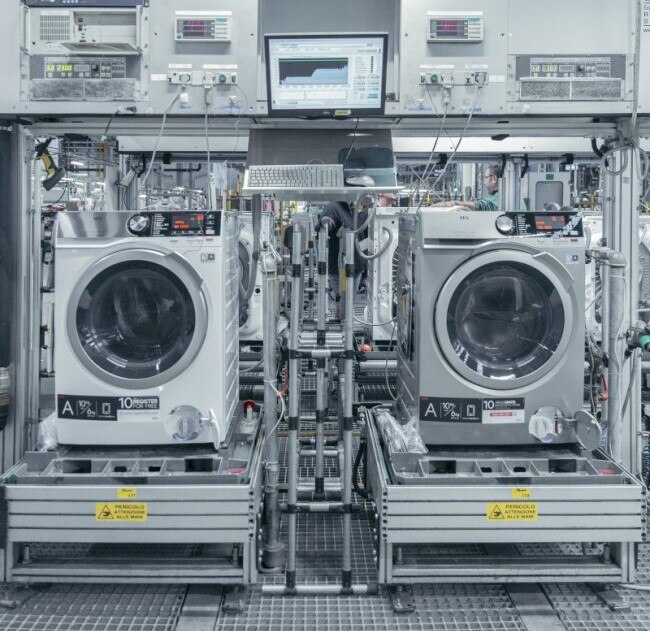
Our journey toward more sustainable operations
We work actively with sustainable energy strategies, ethics, human rights, and zero landfill waste to improve our operations.
Turning to renewable energy sources
By 2020, almost 100% of the electricity used in our factories will come from renewable sources. So far we are on track, having already achieved more than 50% of our target. As part of the renewable target, we are also working toward increasing the share of electricity from on-site renewable generation to 14 million kWh.
We are sourcing renewable energy in two ways: producing it ourselves and purchasing it from third parties. The majority of our factories in Europe and the United States are procuring electricity from renewable energy sources. In addition, in Mexico, Italy, Thailand and Australia, we have installed solar panels on the rooftops of our plants.
For instance, at our Vallenoncello factory in Italy, an area of rooftop solar panels as large as a soccer field is generating 1 million kWh, supplying 15% of the energy consumed in the factory.
Highlighting our new Code of Conduct
We work actively to nurture a culture of ethics and respect for human rights within the organization. In 2018, a new Code of Conduct, including a human rights policy statement was launched – to provide an easily accessible guide for our employees. 90% of our employees stated they understand how they are expected to act in accordance with our Code of Conduct (Electrolux 2018 Employee Engagement Survey).
In 2019, the focus will be on reinforcing messages through training and communications.

Energy efficiency in operations
Together with a shift to renewable electricity, efficiency improvements in recent years have reduced energy consumed at our manufacturing sites per product by around 44% and absolute CO2 emissions by 66% compared with 2005. This equates to annual financial savings of over SEK 500 million.
Over this period, the Group’s revenue has increased, which illustrates that Electrolux has decoupled revenue growth from CO2 emissions.
Sending no waste to landfills
Sending waste to landfills is not resource efficient. Landfills pollute the air we breathe. They contaminate the water we drink. And worst of all, they generate the super-greenhouse gas methane.
The World Health Organization says that landfilling is the worst waste management option, not only in terms of environmental impact but also when it comes to resource efficiency. By 2020, the aim is to introduce a Zero Waste to Landfill program at all Electrolux factories.
Our São Carlos factory in Brazil is the first to be Zero Waste to Landfill certified by a third-party auditor. This means it has achieved the goal of sending less than 1% of its waste to landfills and for its low waste-to-energy rate. Several initiatives contributed directly in achieving this certification, such as a composting machine and the help of environmental experts who identified recycling approaches for the majority of waste within the factory.
The entire site was audited by a third-party auditor that verified the waste management process, from data regarding waste generation, internal controls, and the approval process for waste management contractors.
This case study is related to our promises Achieve more with less and Our climate targets.
Electrolux
Electrolux shapes living for the better by reinventing taste, care and wellbeing experiences that make life more enjoyable and sustainable for millions of people. Through our brands, including Electrolux, AEG and Frigidaire, we sell more than 60 million household and professional products in more than 150 markets every year.
S:t Göransgatan 143
SE-105 45 Stockholm, Sweden